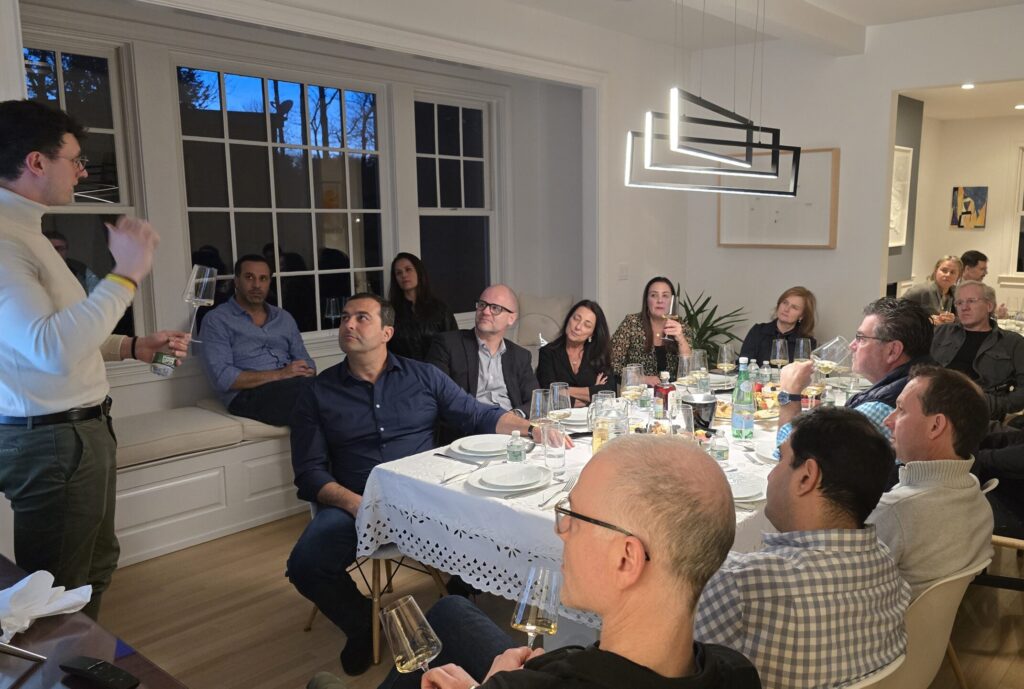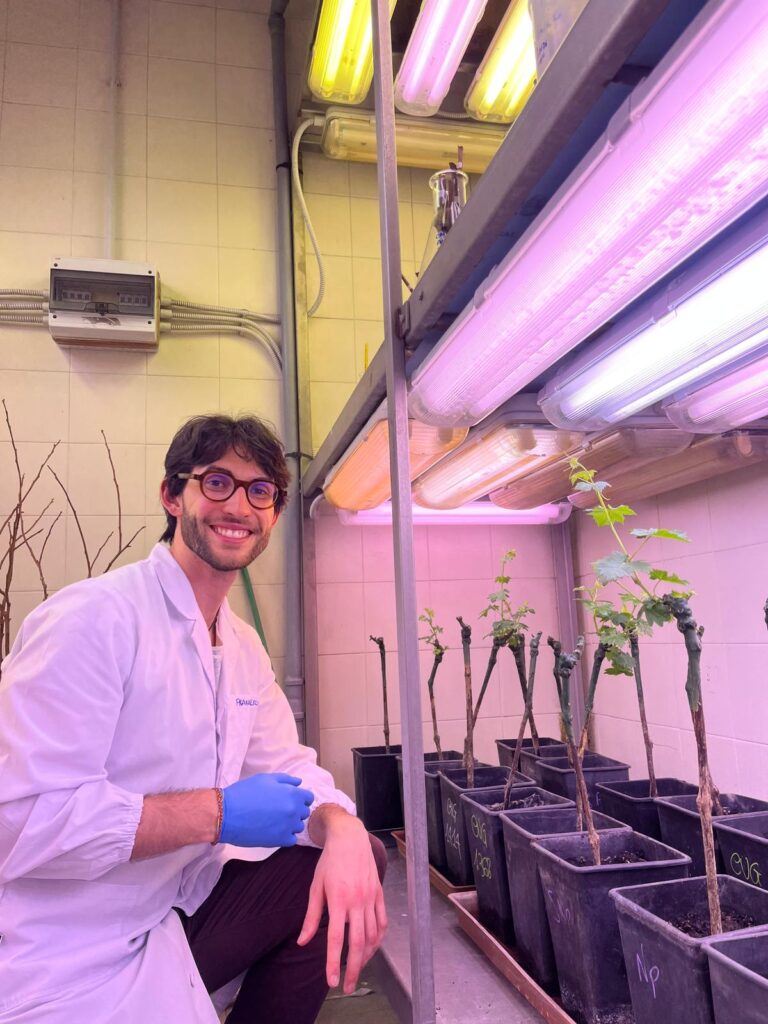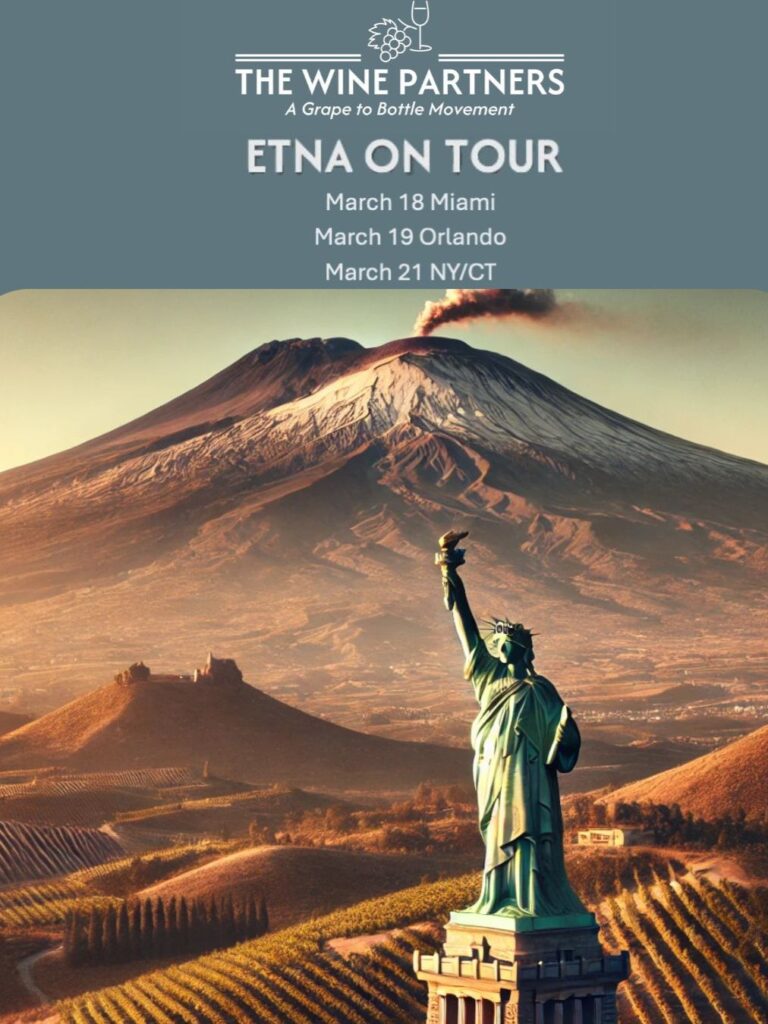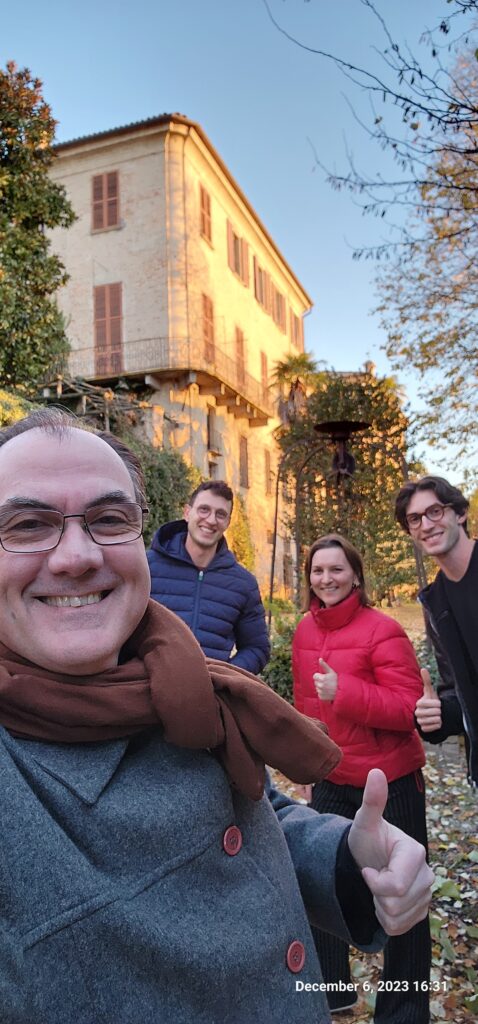Our Own Supertuscan – A Grape to Bottle Immersive Experience
Prologue — When the Extraordinary Feels Ordinary Sometimes, life gifts us moments that feel simple — natural, even — until later, when we realize they were quietly extraordinary. It’s only in retrospect that we see the magic that was unfolding right in front of us. That’s exactly how I feel looking back on those days at La Gazzara. At the time, everything seemed so effortless: the rolling hills of Tuscany, the laughter over aperitivo, the scent of fermenting grapes. We were simply a group of wine lovers coming together to learn, taste, and share. But what we were actually doing was something much deeper — we were creating together. Weeks later, I stumbled upon a piece of news that mentioned another winery had launched a similar hands-on winemaking experience. It made me pause and smile. Maybe we had unknowingly started a new chapter in wine culture — one where enthusiasts aren’t just observers but co-authors of their own blend. Looking back, I realize that what happened at La Gazzara wasn’t just about wine. It was about connection, ownership, and the rare feeling of being fully present in something real — only to understand its meaning after it’s over. Chapter 1 — Welcome at La Gazzara The rolling hills of Tuscany greeted us with golden light as we arrived at La Gazzara, our home for the event. After check-in there was an unexpected — and perfect — welcome: a gift basket with some Tuscan delicacies. Mauricio, the CEO of The Wine Partners welcomed us all and explained in detail the agenda of the next few days. The group got acquainted with one another. We then had some aperitivo and bollicini from Felsina, produced in the region. Chapter 2- Tasting three exclusive Super Tuscan blends, and the first sip of what would become our signature. The winemaking team had prepared three exclusive blends of Super Tuscan (2020) for us to taste. Each blend was constructed from different proportions of Sangiovese, Cabernet Sauvignon, Merlot and Cabernet Franc, and tasting them side-by-side immediately taught us how each variety influences color, tannin, acidity and aroma. We debated, we compared, and then we voted — each member choosing the 2020 blend they felt most connected to. The idea that we could each take home a piece of 2020 before Christmas and, in parallel, create our shared 2025 together, set the tone for the whole experience: personal, collaborative, and deeply emotional. Side-by-side learning — how Sangiovese and international varieties shape a blend. Tasting those three Super Tuscan 2020 blends taught us the vocabulary of blending. Sangiovese gave acidity and red-fruit lift; Cabernet Sauvignon brought structure and dark fruit; Merlot softened with plush mid-palate texture; Cabernet Franc added perfume and spice. Being asked to vote made the exercise personal: we weren’t merely students — we were partners in authorship. The outcome — the chosen favorite 2020s to take home and the blueprint for our 2025 communal batch — made the idea of ownership tangible. We ended the day having an amazing pizza and tasting some white and rose wines from Castell in Villa. Chapter 3— Masterclass Day – From Grape to Bottle Under a soft Tuscan sun we walked the vineyard rows, guided by the winemaker team. Understand the annual cycle of a vineyard, and how we need amazing grapes to create amazing wines was key to the experience. The tour helped each of us to learn how to listen to a vineyard —feeling the ripeness, smelling the earth, and sensing the season. Back at La Gazzara we moved into the Vinification Masterclass: fermentation decisions, skin contact timing, temperature control — every choice a fingerprint on the wine. Later that morning we went into the cellar, to taste different most from the 2025 vintage, some just a few weeks old. We reviewed some decisions we had to make as a group for our 2025 blend. In the Custom Made Wine Session, our group became a tasting committee and a design team at once: we tasted, adjusted, and debated proportions until the draft reflected our collective taste. Chapter 4 — The Chianti Classico Tasting Castell in Villa is one the most iconic and traditional wineries in Chianti Classico. This journey could not be complete without tasting different expressions of their Chianti Classico. Chapter 5 — Private Cooking Class Back at La Gazzara, a private cooking class turned into a lesson in pairing and conviviality. Guided by Melissa, everybody got their hands on and made their own pasta. The menu: hand made fresh Tagliatelle with Pomodoro sauce and Ravioli with Spinach and Ricotta with salvia and burro. For dessert, we all prepared and helped to make a Tiramisu. Dinner was served, wines poured and everybody felt a sense of belonging. Another amazing day. Chapter 6 – Siena, the Bistecca, and Neighboring Wines Our day trip took us to Siena where we honored Tuscan food culture with a monumental bistecca alla fiorentina — a communal ritual of taste and conversation. Later we visited Montechiaro, a neighboring winery, to taste their expressions of the same land. Comparing wines across producers sharpened our senses: technique and philosophy can interpret terroir so differently, and each interpretation expanded our understanding of what we were creating. Chapter 7 — Celebratory Dinner prepared by Il Pino The Celebratory Closing Dinner was when we signed the label: a quiet, proud moment where our handwriting became part of the bottle’s identity. It felt both ceremonial and delightfully real — proof that this wine belonged to a community, not just a name. Our dinner was prepared by Il Pino restaurant, from San Geminiano. The menu offered aperitivo, a calcio and pepe linguini, wild boar and panna cota. All paired with an amazing line up of wines. Reflections — Why Bespoke Experiences Matter This project was more than a series of events. It was an immersive education that culminated in ownership. Each member will get a unique blend of the 2020 supertuscan and a stake — emotional and creative — in the 2025 blend. The Wine Partners believes the future of the industry should be built on experiences





